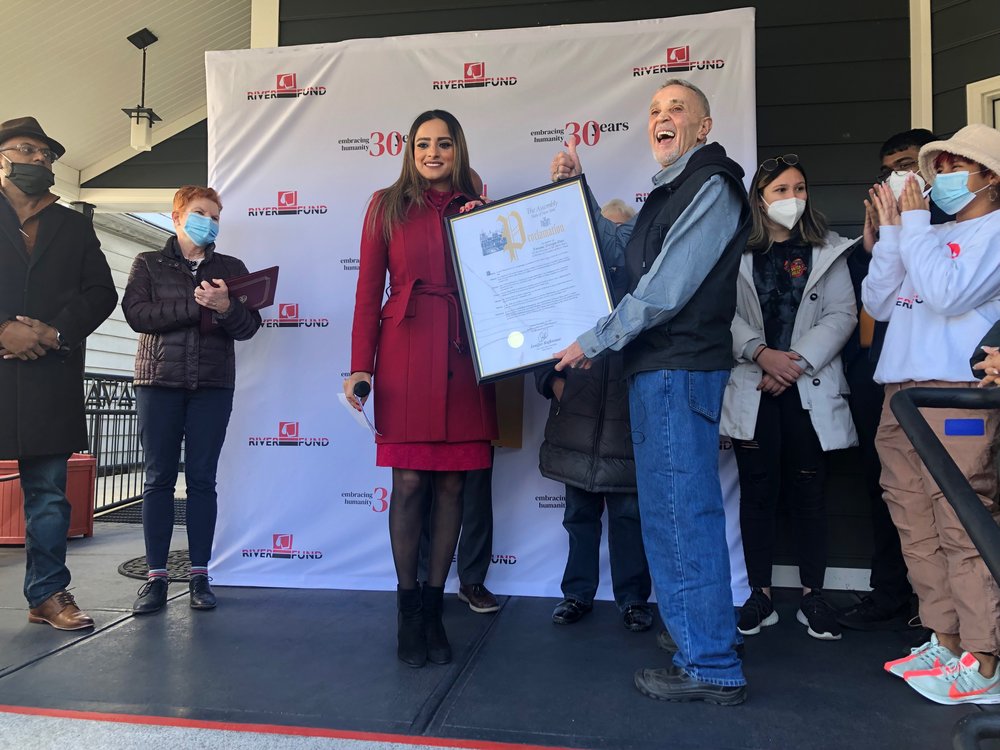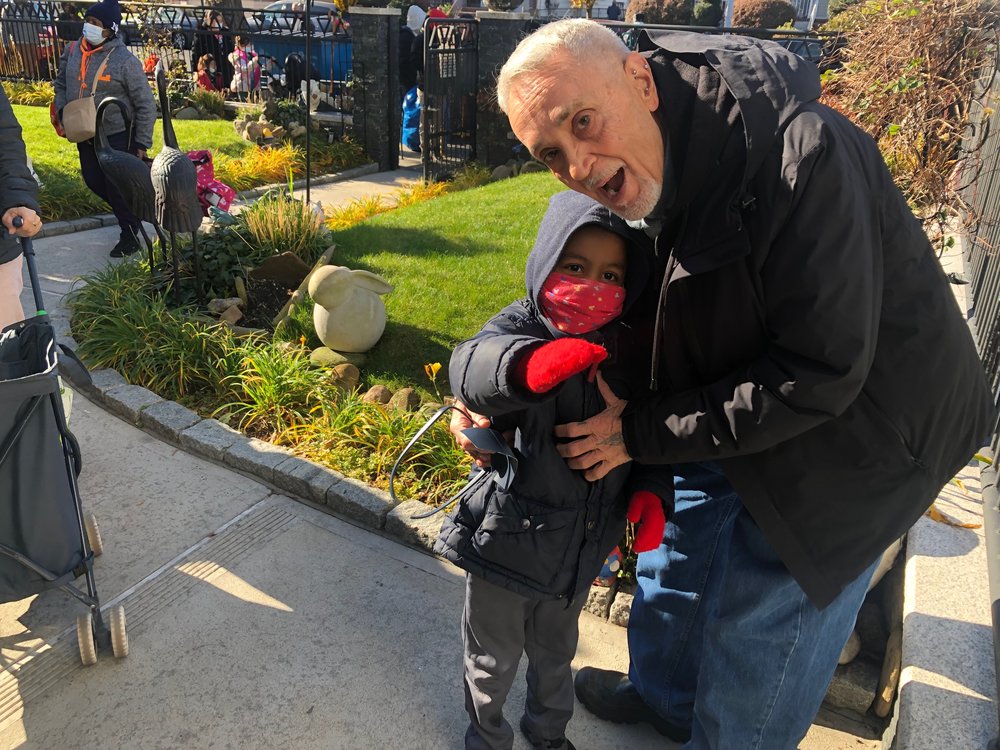River Fund celebrates 30 years of giving back
By Evan Triantafilidis
The River Fund celebrated 30 years of charitable nonprofit work with its Thanksgiving turkey distribution in Richmond Hill.
It may have been just another week of giving back for Swami Durga Das, founder and CEO of the River Fund Food Pantry, which served over 2,000 families in Queens on Saturday. With several blocks of people lined up for food, a milestone was celebrated for the organization’s ongoing fight against poverty.
“It’s really all about caring for our fellow New Yorkers and how we balance their lives out and make it a little bit more palatable to live through poverty,” said Das. “Two-thousand people shouldn’t be in line getting groceries, but they are.”
Starting with 12 dozen cookies, the nonprofit was founded in 1991 to focus primarily on the HIV/AIDS epidemic. Years later, the River Fund shifted their focus to tackle the epidemic of poverty.
Today, the River Fund serves about two-million pounds of food a month, feeding about 3,000 households a week. With mobile and home-delivery programs, along with a Benefits Access Center, the nonprofit has served as a vital lifeline for the Southeast Queens community.
Das was honored with multiple proclamations and awards from elected officials, including the offices of Councilwoman Adrienne Adams, councilwoman-elect Lynn Schulman, Assemblywoman Jenifer Rajkumar, and the Mayor’s Community Affairs Unit.
“He serves my constituents day in and day out,” said Rajkumar. “He’s been an incredible partner.”
Schulman and Rajkumar praised the ongoing work of the nonprofit, adding that the pandemic exacerbated the cycle of poverty. To their point, the River Fund quadrupled its numbers during the middle of the pandemic. More recently, Das says that the need has gone up even further.
“In the last six months, we thought it would come down or balance out,” said Das. “It’s been just the opposite.”
The organization also promotes the importance of education, and offers scholarship, mentoring, behavioral and tutoring programs.
“You want to know a family and see what they’re going through, and you want to make sure that each person in the family is cared for in some way,” said Das. “That’s how you change poverty.”





